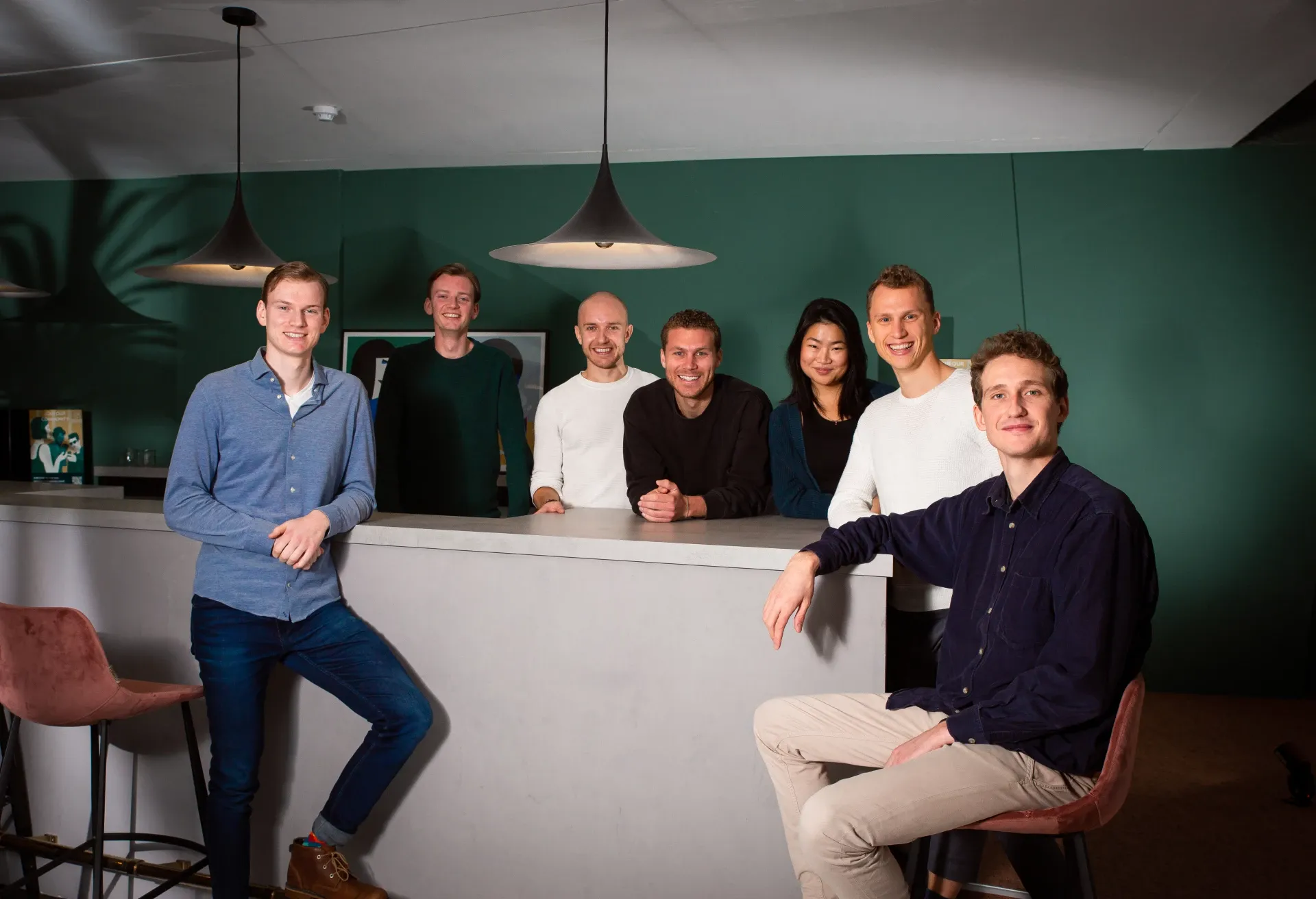August 5, 2024
Breeze: World’s First Dating App to Organise Offline Dates at Scale

Founded in 2019 by former TU Delft students Marsha Goei, Marco van der Woude, Thomas van der Pas, Daan Alkemade, Thomas Oomens, Philip van den Heuvel, and Joris van Doorninck, Breeze is a dating app that streamlines the process of organising quick, safe, real-world meetings, reducing the need for prolonged online chatting.
After a successful pitch on the Dutch version of Dragons’ Den in 2021, Breeze raised €1.3M in 2022 and expanded to Belgium in 2023. Last month, the company expanded further to London. We spoke to the founders about the company’s plans moving forward.
We started Breeze during our studies in Delft. Knowing each other from De Kleine Consultant (a student-run non-profit strategy consultancy), we embraced the philosophy that team matters more than ideas and essentially started a venture builder.
We had two initial ideas related to dating: a ‘swipe-for-your-friends dating app’ and a ‘blind-date Tinder that arranges the date’. We found that people were frustrated with current apps, particularly during the chatting phase. Research showed that people spend an average of 38 hours on Tinder per date. Realising the potential to improve the dating experience, we decided to drop out of our Master’s programmes and commit to building a dating app focused on facilitating offline dates.
Unlike most dating apps that follow the ‘swipe, match, chat’ concept popularised by Tinder, Breeze operates on a ‘match, plan, date’ model. When you match on Breeze, there’s no chat. Instead, users fill in a date picker. Based on their availability and addresses, we make a reservation at one of our partnered hospitality venues. Users pay for our matching service, arrangement, the reservation, and the first drink provided by the venue.
Whilst we have a smart venue selection and reservation system, our main technological focus is on matchmaking. We send users a limited number of suggested matches twice daily (at 7am and 7pm). This means we don’t just filter and sort available profiles; we use complex recommendation systems to optimise both locally and globally, sending the best number and set of profiles for all users.
In essence, we use technology not to optimise for engagement and retention through endless swiping and chatting, but to facilitate actual matches and offline dates.
A key challenge we faced was Covid-19. We had just launched the app in early 2020 and had great traction with national media, but just one month later, the pandemic hit. Where other dating apps thrived, our model was (and is) organising offline dates at partnered bars. For a long time the bars were closed and people were reluctant to meet new people.
So we didn’t earn any money – all our active users churned because we had no service to deliver. We were unsure if we would continue or pause for a while to work or finish studies. It was a very close call. We’re happy we stuck together – we found a temporary solution by organising ‘Walk & Talk’ dates and eventually raised a small round during those uncertain times from friends and family.
Several Rise alumni recommended the programme to us, and our recent launch in Germany and plans for the UK and US expansions made it the perfect time to join.
A couple things come to mind:
Firstly, we’ve expanded our use of scorecards beyond hiring to include employee evaluations. This approach helps calibrate middle managers by having them fill in scorecards, allowing us to assess how critical their roles are. We’ve learned not to just evaluate employees on values, but also on their agreed-upon objective results and improvements they were expected to deliver.
Secondly, we’ve learned it’s okay to give leaders the final say on decisions. As Dutch people, we’re very consensus-driven, but with the need to move fast and be ambitious, this isn’t always productive. We’ve found it’s often better to be clear about decision structures and give people less say, rather than giving more input but still overruling or ignoring people in the end.
Lastly, we’ve realised the importance of planning in our OKR process. It’s not just about setting metrics; the ‘Plan to Achieve’ or ‘Roadmap’ is equally important. We now use the ‘W-Model’ from Miro to decide on OKRs. Here, leadership makes the first draft of the OKRs and plans. The various teams then have 2 rounds to refine and develop the draft, before leadership makes the final decision.
Our goal is to have organised 5 million dates by the end of 2026. We aim to become one of the biggest dating apps in the major cities in the EU and US. If you want to keep track of our progress, the current amount of dates organised is on our website.
The launch in London has been very successful – we have seen that there is quite a lot of ‘dating app fatigue’ in London, especially among women. We have outpaced our goals there so far and continue to grow weekly with double-digit numbers. We already plan to launch in one or two other cities in the UK.

 Transferz: Driving Ground Transportation Forward with Smart Tech and Fair P...
Transferz: Driving Ground Transportation Forward with Smart Tech and Fair P...